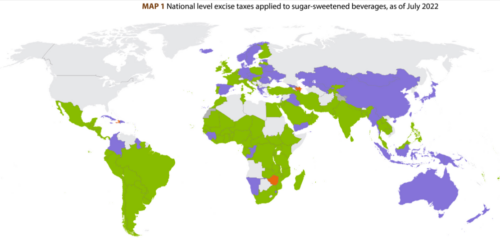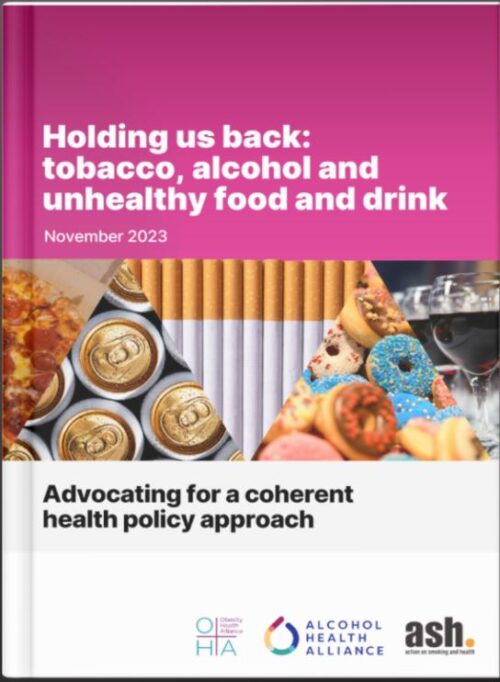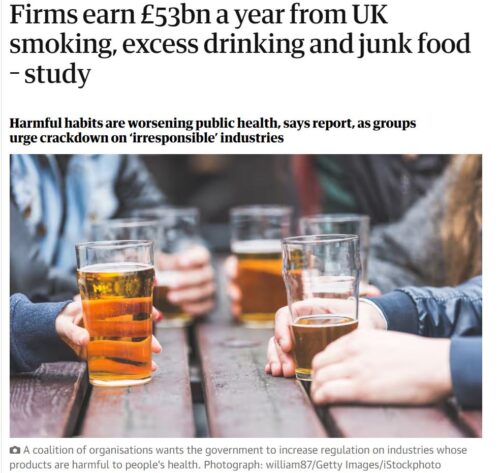Brazil tax reform!
At the end of December, I received an email from Paula Johns, director of ACT Health Promotion in Brazil.
Today we are celebrating the approval of the tax reform in Brazil. This Tuesday, Dec 17th, the text was approved by the National Congress!!
The tax reform is a historic achievement for Brazil and we celebrate the fact that products harmful to health, such as tobacco, alcohol and sugary drinks, are included in the selective tax. We followed each stage of the discussion and saw the intense lobbying by the economic sector that profits from these products to weaken the selective tax proposal, but it was finally approved, as well as the tax-exempt basic food basket, with healthier products in accordance with the Brazilian Food Guidelines.
…Important to highlight that our National Congress is one of the worst we’ve ever had! To beat The Coca-Cola lobby there is quite an achievement! Wanted to celebrate with you. The inclusion of carbonated drinks in the selective tax now opens the door for a broader discussion about other categories of ultraprocessed foods in the revision that will happen in five years from now.
I also received a press announcement: “Historic Public Health Victory”: Vital Strategies Applauds Brazil’s Approval of Selective Tax on Tobacco, Soft Drinks, and Alcohol
The newly approved legislation includes annual tax adjustments for tobacco, soft drinks and alcohol in line with inflation. Additionally, it establishes an innovative basic food basket of healthy, sustainable products exempt from taxation. The tax reform also grants a 60% reduction in tax rates for horticultural and minimally processed products, nuts, oils, flours, and items from Brazil’s rich socio-biodiversity. These measures will help ensure better access to nutritious food while discouraging consumption of unhealthy commodities.
…The specific tax rates for tobacco, alcohol, and soft drinks will be determined in 2025. To fully realize the public health benefits of this new tax structure, the levels of tax must be sufficient to reduce consumption. Vital Strategies, Brazil, will collaborate closely with partners to advocate for tax rates that prioritize public health. Setting these rates at levels that significantly reduce consumption of harmful products will protect communities from preventable diseases.
I tried to find more details, and hit upon Covington ‘s Brazil’s historic tax reform: a primer. This lays out what will have to happen before implementation. It says almost nothing about the public health taxes except this:
Key Change: the Selective Tax
In addition to the dual VAT (CBS/IBS), the reform establishes a new Selective Tax (IS) to regulate goods and services it characterizes as having significant negative health and environmental externalities. The IS will be charged on production, extraction, sale, or importation of these goods and services.
This will be interesting to watch. Stay tuned!





